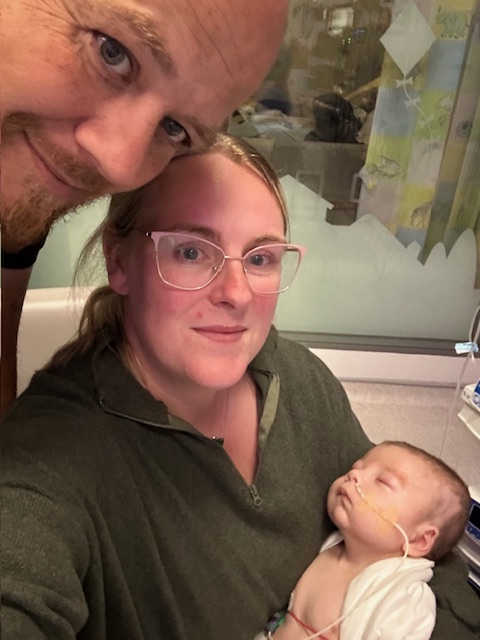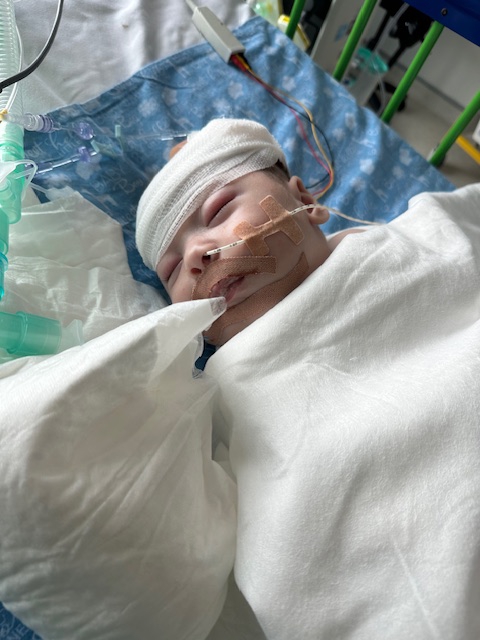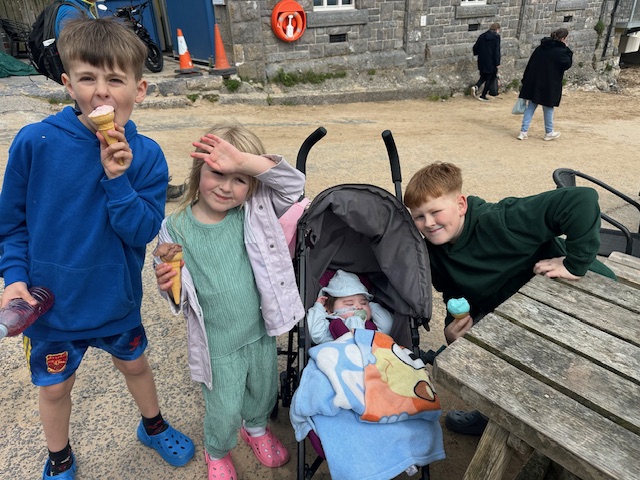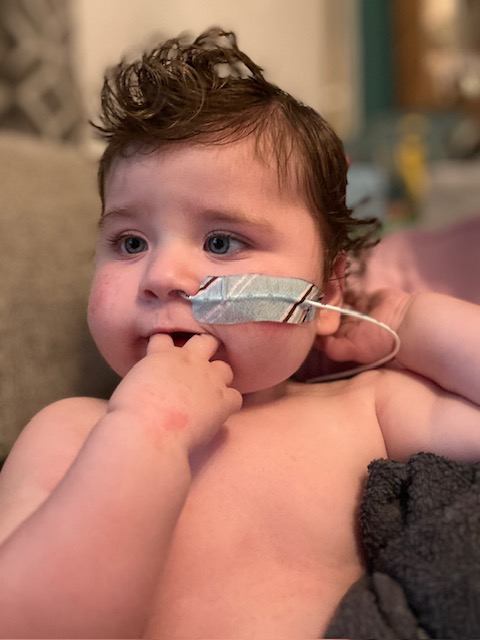WHEN doctors brushed little Jack Thomas’ symptoms off as “typical for newborns”, his mum was not convinced.
Looking at her son, Amanda Thomas knew something was “gravely wrong”, and trusting her instincts, she pushed medics for an answer. It led to Jack being diagnosed with a “ticking time bomb” condition that will likely claim his life before the age of five.
For now, the one-year-old suffers multiple seizures a day, is completely blind, and is unlikely to ever sit, walk or talk.
When Amanda, 35, realised Jack wasn’t able to make eye contact, she raised concerns.
But it wouldn’t be until he had a seizure so severe he stopped breathing that he underwent testing.
Amanda and husband Nicholas, 44, were then told that Jack had a mutation of the PPFIBP1 gene, which he inherited from his parents.
It means he might only have a year left to live – though no one can truly predict what will happen in the future.
Amanda, a former social care officer from Glamorgan, Wales, tells Sun Health: “No parent wants to be told that they will outlive their child.
“Having to plan for that eventuality is heartbreaking.
“I used to think the house not being tidy and the washing piling up was so important.
“Now I’m realising the most important thing is that our son is still with us. And right now, that’s all I could ask for.”
Jack’s condition changed the lives of the whole family – including Amanda and Nicolas’ three other children.
Amanda says: “One of us needs to be with Jack at all times, as no one else can administer his medication and pump feeds – plus the risk of him having a seizure is too great for us to leave him with just anyone.
“So I’ve had to give up my job, putting a strain on our income.
“And our relationship is a challenge, as we’re only able to have the odd hour separately, never together.”
I felt shocked and numb. I had so many questions, but couldn’t speak
Amanda Thomas
Amanda and Nicholas were told at their 12-week scan that there was excess fluid at the back of Jack’s neck, giving him a 25 per cent chance of survival.
The couple decided to have further tests, which came back clear.
Amanda says: “We were told to enjoy the rest of the pregnancy and look forward to having a perfectly healthy baby.
“They did more regular scans, and everything was fine.”
‘I screamed for help’
Jack was born on July 3, 2024, and was a healthy boy; the fluid at the back of his neck had gone.
Nine weeks later, though, Jack appeared lethargic and wasn’t taking feeds.
Though she assumed he was coming down with a bug, Amanda had a gut feeling something wasn’t right.
When his right eye turned outwards, she and Nicholas rushed him to A&E.
But they were sent home by doctors, who said all newborns do “weird” things with their eyes.
Later that evening, though, he suffered a seizure.
Amanda says: “I screamed for help, and two nurses came in, with one calling for the crash team.
“He had been taken back into hospital for investigations, as his eye went funny again before putting him to bed.
“Suddenly, there were loud alarms going off and dozens of people rushing to his side.
“The seizure was so severe that he stopped breathing twice.
“I could see them resuscitating him; I truly thought he was slipping away from me.”
Jack was intubated, and a series of CT and MRI scans were carried out, showing calcification on the brain.
These show up as small white spots on medical imaging and can be caused by various genetic conditions.
I sometimes think there’s no way I can cope; but I have to, for Jack
Amanda Thomas
The couple agreed to genetic testing, which discovered that both Amanda and Nicholas had faulty copies of the PPFIBP1 gene.
Jack had inherited both copies, which had mutated, causing a neurodevelopmental disorder with seizures, microcephaly (a small brain), and abnormalities.
He’s the only known case in the UK, and one of 16 worldwide.
Currently, his condition doesn’t have a name, and as there’s little information, there’s also no treatment or cure.
Amanda says: “I felt shocked and numb. I had so many questions, but couldn’t speak.
“All I wanted to hear was that he was going to be OK – but no one could tell us that.
“The hardest part was being told that sufferers usually pass away during childhood.
“It’s a grey area; he could have one, five, or 10 years left. No one knows.”
Life-limiting disorder
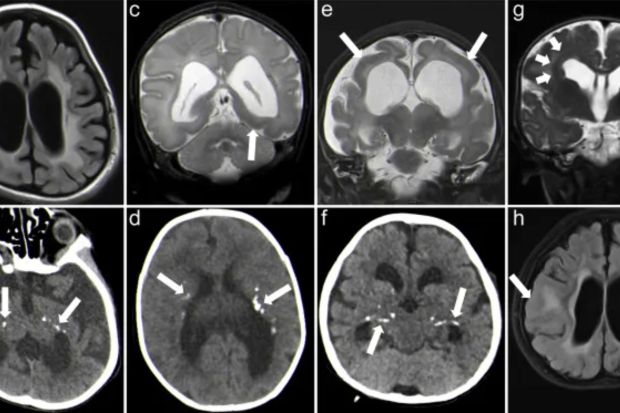
ONLY 16 children worldwide are known to have the life-limiting genetic condition that Jack has.
It is so rare, it doesn’t even have a name.
With so few cases, it is hard for doctors to predict Jack’s life expectancy, or know the best ways to help him.
All they know is that his PPFIBP1 gene mutation causes drug-resistant seizures, microcephaly and brain abnormalities.
Jack is the only known case in the UK.
A study by the University of Leipzig, published in 2022, identified 16 people from 12 unrelated families with variations in the gene.
“They presented with moderate to profound developmental delay, often epilepsy and progressive microcephaly,” the researchers wrote.
“Further common clinical findings included muscular hyper- and hypotonia, spasticity, failure to thrive and short stature, feeding difficulties, impaired vision, and congenital heart defects.”
Four of the 16 died aged three to eight
Uncertain future for our boy
Amanda’s life now focuses on caring for Jack.
She starts the day by crushing his tablets, mixing them with water and putting them through his feeding tube.
She says: “We set up a pump feed. I have to weigh out his specialist keto formula the night before, make up four feeds for the following day, and they are provided via his feeding pump.
“These feeds take an hour, four times a day.
“I also have to check his glucose and ketone levels by pricking his toe twice a day, and if he is poorly, I have to do this every four hours.
“We have to constantly watch him during the day for seizure activity, and he has a breathing monitor overnight, which will alert us if something happens.”
Jack receives physiotherapy and occupational therapy to help strengthen his core.
Amanda says: “He doesn’t have the tummy strength to open his bowels, so we also give suppositories to help with this.
“Jack has been given a standing frame – he cannot bear weight on his legs or sit unaided.
“We have been told to expect him to never be able to sit without support.
“He uses the standing frame every day for as long as he can tolerate it, to help with bone density.”
He nestles his head into our shoulders if he wants a cuddle, and finds our faces with his hands when he wants to play.
Mum Amanda
But, as he’s growing, bigger equipment is needed, and funds are tight.
The family are aiming to raise £20,000 to support this, with over £1,200 donated to their GoFundMe so far.
Amanda says: “Jack is unlikely to ever sit, walk or talk.
“Mobility will become an issue as he grows, which is why we are trying to get the house accessible.”
Despite being mostly non-verbal, Amanda says Jack “certainly finds his own way of telling us what he wants.”
She says: “He makes certain sounds that tell us if he is happy or not, he will growl at us if he doesn’t want his nappy changed, he nestles his head into our shoulders if he wants a cuddle, and finds our faces with his hands when he wants to play.
“We are learning Jack’s little ways.”
The ordeal has taken a huge toll on the couple, including their other kids, who do not have any faulty genes.
Amanda says: “We have to keep going each day to ensure that Jack is safe, and knows how loved he is, but our other children also need us.
“It’s hard to stretch ourselves to make sure they are all having their emotional needs met.
When to call 999 for adults and children
You should call 999 in life-threatening emergencies.
For adults, this includes:
- Signs of a heart attack (chest pain, pressure, heaviness, tightness, squeezing)
- Signs of a stroke (face dropping on one side, unable to hold both arms up, difficulty speaking)
- Sudden confusion (doesn’t know own name)
- Suicide attempt
- Severe difficulty breathing (unable to speak, choking, gasping)
- Choking
- Heavy bleeding (spraying, pouring, making a puddle)
- Severe injuries (after a serious accident or assault)
- Seizure
- Sudden and rapid swelling (lips, mouth, throat, tongue)
For children, this includes:
- Seizure
- Choking
- Difficulty breathing (grunting noises, stomach sucking under rib cage)
- Unable to stay awake (can’t keep eyes open for more than a few seconds)
- Blue, grey, pale or blotchy skin, tongue or lips
- Limp and floppy (head falls to the side, backwards or forwards)
- Heavy bleeding (spraying, pouring, making a puddle)
- Severe injuries (after a serious accident or assault)
- Signs of a stroke (face dropping on one side, unable to hold both arms up, difficulty speaking)
- Sudden and rapid swelling (lips, mouth, throat, tongue)
- Sudden confusion (agitation, odd behaviour, non-stop crying)
Source: NHS
“His brothers and sister absolutely adore him; they know that he is different, and they do worry when he has his seizures.
“They help us when Jack is unwell, and they can even recognise a subtle seizure when it’s happening.
“I am so proud of them – but this is something they should not have to be dealing with.
“I sometimes think there’s no way I can cope, but I have to, for Jack.
“As a family, we’re just enjoying each moment we have with him; taking it day-by-day.”
Amanda is trying to raise awareness for Jack’s unnamed condition, along with finding others like him.
She has been sharing his case on social media and has so far spoken with one woman in Georgia, United States, whose daughter had the condition and died aged two.
For now, though, they’re making the most of the limited time they have with him.
The mum adds: “We just enjoy him. We celebrate those little milestones that may not mean much to others.
“We do enjoy days out and have managed a little caravan holiday so far – which was challenging – but we made lovely memories.
“The joy he brings us is amazing, and we are so proud of him.”


